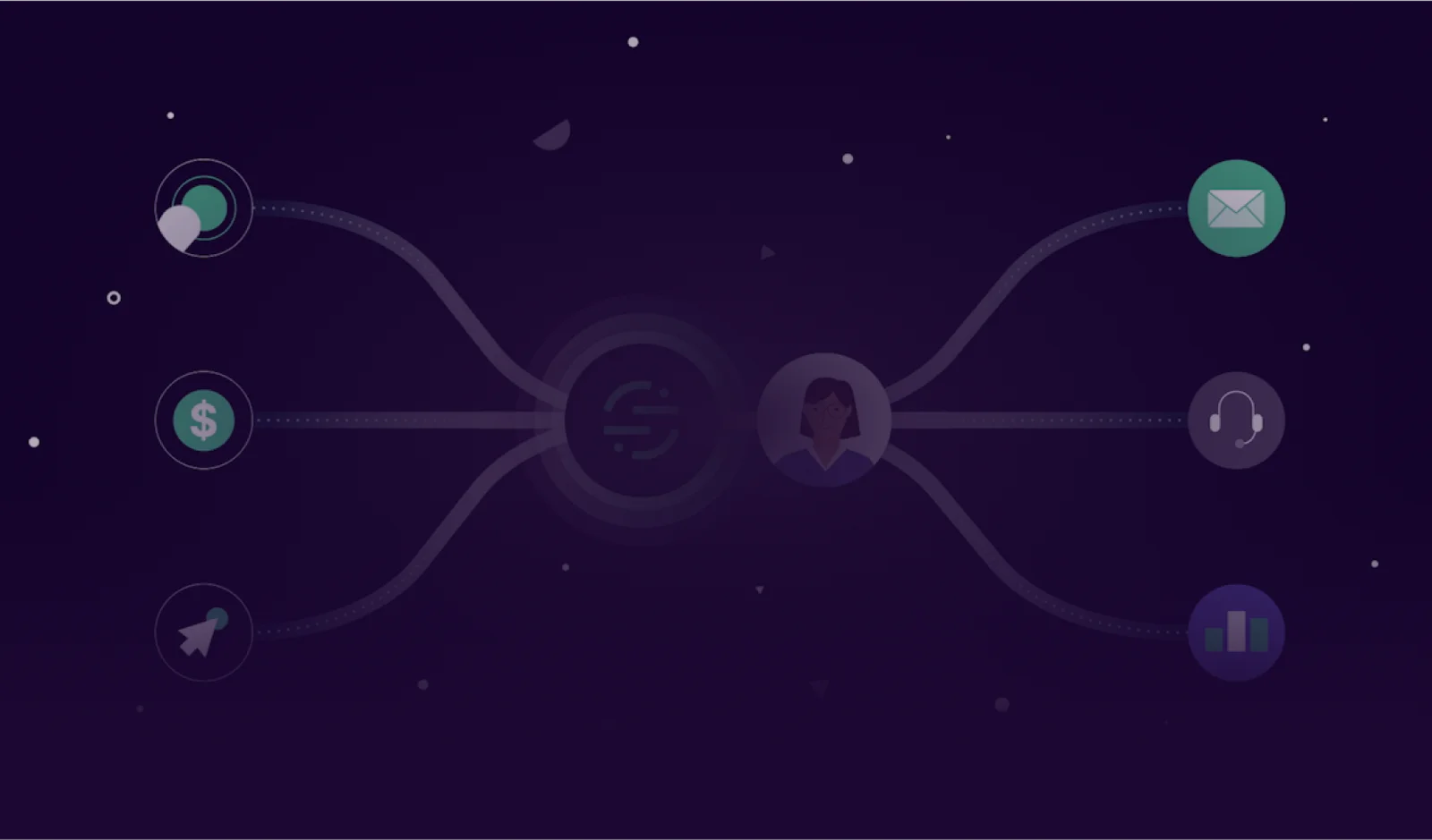2021 State of Personalization Report
From nice-to-have to necessity for intelligent customer engagement.

All Segment content and resources are moving to Twilio.com soon! Learn more.
From nice-to-have to necessity for intelligent customer engagement.


2020 transformed consumer behavior like never before. With stay-at-home orders in place and brick-and-mortar businesses closed, companies of all sizes were forced to reconsider their customer engagement strategies. However, this “flight to digital” radically increased consumers' expectations far faster than what many brands were ready for.
Overnight, consumers expected brands to remember who they were, where they came from, and what they liked, regardless of what channel they came from.
This promise of personalized, one-to-one marketing might once have been a pipe dream. It is now increasingly table stakes for consumers today. But as consumers’ expectations rise, are businesses equipped to deliver these experiences?
Insightful takeaways from the report, at a glance.
To remain competitive, highly personalized customer experiences, built on a foundation of first-party data, have become the primary means of driving customer loyalty and differentiation, as well as a higher bottom line for businesses.

Offering personalized digital experiences used to be a nice-to-have. Now it’s essential.
Both businesses and consumers agree: 75% of businesses believe personalization is table stakes, while over half of consumers say personalization improves the customer experience.
What customers say:
“Having Segment not only helped us do the personalization work we’ve always wanted to do, but we can now improve on the effectiveness of our ad campaigns and create a better feedback loop.”
Christian Rocha Castillo
Deputy Director Ecommerce/Digital Media at Domino’s Pizza
Businesses investing in personalization stand to drive greater revenue from those that don’t.
60% of consumers say they will become repeat buyers after a personalized shopping experience with a retailer. When Segment asked consumers the same question in 2017, only 44% said the same.
What’s more, nearly half say they’re less likely to make a purchase from a brand after an unpersonalized experience.
How likely are you to become a repeat buyer after a personalized shopping experience?

Your customers deserve more than surface level personalization, so get your personalization off the ground with these tried and tested strategies.

To meet demands for privacy and security, businesses have to dedicate more resources to ensuring customer data is collected in a secure manner, while still ensuring they're delivering the customer-first experiences that consumers expect.
When deciding whether to shop with a particular brand, what’s most important?

Digital trust must be a cornerstone of a brand’s digital transformation. Customer relationships are at stake.
55% of consumers say trustworthiness and transparency are the most important traits of a brand.
Consumers are divided about whether brands are acting in their best interest: 37% of consumers say they trust businesses to keep their personal data secure and use it responsibly, but another 37% don’t trust online retailers with their personal data.
Do you trust retail brands to keep your personal data secure and use it responsibly?

The evolution of consumer privacy has cleared the way for first-party data, collected about a business’ own interactions with its own customers, to move into the spotlight. Thankfully, in today’s digital world, that’s hardly a scarce resource.

While overall knowledge of data security is on the rise, there appears to be a genuine willingness to share data safely and securely in exchange for the convenience of personalization.
Almost half of consumers say they’re happy to exchange personal data in exchange for personalization.
Customers want personalized experiences and are increasingly willing to provide their data in order to get it.
69% of consumers say they are fine with personalization, so long as it’s data they’ve shared with a business directly.

Despite consumers using more channels and devices than ever before, few businesses are prepared to deliver consistent, personalized experiences across channels.
More and more consumers (69% to be specific) expect a personal and consistent customer experience across multiple different channels, both physical and digital. Yet few businesses are following through with it.
Just 24% of businesses say they are investing successfully in omnichannel personalization.
Rugs.com unified its owned and paid channels to achieve 400% revenue growth


As well as adding more channels, businesses are concentrating on reducing fragmentation between the channels they’ve already invested in. Consumers agree. Given a choice, 61% say they’d prefer fewer, better channels when shopping with a brand.
What customers say:
“Segment has become the data hub that we needed. There isn’t a question on how or when data will get from one place to another. We feel confident we can execute communications and insights in the right way with the right data.”
Ann Ehnert
Manager of CRM & Loyalty Marketing at Schnuck Markets
Meet the first customer journey builder for the digital-first era, powered by Twilio Segment.
Conclusion
The State of Personalization makes it clear that brands only face two choices: personalize or perish.
The digital acceleration sparked by the pandemic has created a new reality and new expectations. If brands fail to take this seriously, customers will simply walk away and support the competition.
If you’d like to join the 20,000+ customers using Segment Twilio to power their personalization strategies, get started today.
Start connecting your data with Segment